Interview: James Husband & of Montreal (w/ Jamey Huggins)
 In between rehearsals for James Husband and of Montreal, we caught up with Jamey Huggins before both bands began a short eastern tour. Huggins, who has played drums, bass and keyboards (that I know of) for of Montreal since 1998, has just released his solo effort, A Parallax I. We spoke about being in two bands at once, being influenced by Guided by Voices and what the future may hold for of Montreal.
In between rehearsals for James Husband and of Montreal, we caught up with Jamey Huggins before both bands began a short eastern tour. Huggins, who has played drums, bass and keyboards (that I know of) for of Montreal since 1998, has just released his solo effort, A Parallax I. We spoke about being in two bands at once, being influenced by Guided by Voices and what the future may hold for of Montreal.
AS: Hello James, this is Zack from Aural States. How are you doing?
JH: Pretty good. I’m as busy as a bee, having of Montreal practice and James Husband practice and I’ve just now walked into my house to have a quick beer and an interview…I’m doing the Mr. Rogers thing, taking off my work clothes.
AS: You have a trolley?
JH: No, but I do have a cardigan.
AS: What is that like playing with two bands? I have to wonder– like when I saw Lou Barlow open for Dinosaur Jr. a couple months ago– I thought: “He must be so overworked…”
JH: Well anyone who’s doing that obviously has volunteered to do it, so you kind of know what you’re getting into; the danger is accepting to do it and then not being prepared for it to be as much work, which I think my band is having that realization right now. But it’s nothing we’re strangers to, we’ve done it a bunch of times in a bunch of other bands. Dottie and Kevin and Brian had at least three or four whole tours where we were doing double duty. And there was one very special night at CMJ in New York where Dottie, Kevin and I played in four bands in one night.
AS: That’s remarkable, I remember you toured with Ladybug Transistor and the Essex Green back in the day…
JH: That night it was Great Lakes and Marshmallow Coast and Summer Hymns, this was when everyone in Athens played in like four bands at a time and now things have shifted to where everyone has one band, but we like to keep it complicated I guess, because every member of our band has another band, so now its time to see what we can do with my batch of songs.
AS: Yeah it’s funny because when Greg first talked to me he said “You’re going to be interviewing the drummer from of Montreal” who also has this other band, I mean do you see yourself as wanting to distinguish yourself form them on these tracks or are you allied with them…
JH: I don’t really know what that would mean, I’ve been a devoted lifetime member of this band for twelve years, on every tour that they’ve done since 1998. Of course I’m allied with them; it’s not them it’s us, it’s we and all of us have always had different musical projects the entire time. It’s not that one thing’s an offshoot of the other or that everyone has a side project. It’s more that of Montreal has…in the last four years has gained the most attention of any of the projects that any of us do. So, automatically anything else we do sort of became in the shadow of that.
The reality is myself and Bryan and Dottie and Davey and past members that have left the band all had their own bands before joining of Montreal…it just happens to be the umbrella that we’re most magnified under. It’s not about trying to get away from that or prove something…we all do different things, one thing we do is play in Of Montreal…it’s all in good, friendly attitudes. Kevin’s playing with me and so is Bryan and Dottie and Davey…the entire band is playing with me at certain points, so we’re all about helping each other.
AS: So it makes sense to tour together.
JH: It’s not all that complicated; it seems very natural to us.
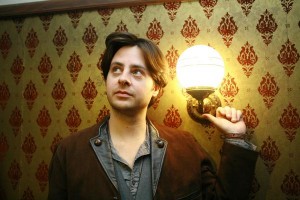 AS: You decided not to release this record with Elephant 6 though, you released this on on Polyvinyl.
AS: You decided not to release this record with Elephant 6 though, you released this on on Polyvinyl.
JH: Uh-huh. Elephant Six isn’t actually a label, all those bands always had a label. The Apples in Stereo are an Elephant 6 band, but all of their records were released by SpinArt then by Yep Roc. of Montreal was an Elephant 6 but our records were released by Bar/None, Kindercore Records and now Polyvinyl Records. Neutral Milk Hotel was an Elephant 6 band but their records were only released by Merge Records. Olivia Tremor Control had three different labels but none of them were the Elephant 6 Recording Company. That’s a misnomer that so many people seem confused by. Mostly it’s like a club; it was just a group of friends who all wanted to have some kind of association with each other publicly. It never was a business, never had an office, never had a tax ID.
AS: It was a scene, centered around Athens and I guess people like to qualify music geographically. But you recorded this latest one in Sweden, right?
JH: I ended up moving to Sweden for several months at a time in between of Montreal tours over the course of about three years. So it’s not like I totally lived there for three years, but I was there every two or three months. So whenever the rest of the band would come home from a tour or we weren’t recording or were on break, everyone else lived in Athens where I guess they had business and I just went over there and it was kind of a happy accident that I met a whole group of people who were musicians and studio guys who offered to record my stuff and help me out.
So it kind of happened very accidentally. I didn’t set out like “I’m gonna go record music in Sweden.” It was more that I was there, happened to meet the right people, and it was a continuation of what was really a hobby, that I had been recording at home. So I just brought those songs to a new reality in the Swedish studios that I worked in, and then when I came home and played them for everybody it was like you have all this stuff, you should make it a real record and put it out since I’d been making recordings since before I joined of Montreal in the 90s. I just kept them for myself and made them for my friends, never really sent them to any labels or anything. And I was always playing in other bands, and just happy to be a musician in the band, happy to play drums and keyboards.
AS: You have these five cover songs you recorded for this album, what was the idea behind those?
JH: That mini-album that was just sort of a guide to critics. You know people start reviewing the record, inevitably people want to say it sounds like he’s trying to do this or that. So for me it’s a road map of influences so that anybody who wants to think about it in those limited terms doesn’t have to do the work themselves. So if you want to say I sound like Guided by Voices, or the Beatles, or that I was influenced by Neil Young or Gary Newman, well here it is, I’m wearing my influences on my sleeve. I intend to release two more batches of those.
AS: I think we feel like it’s a trend lately to classify a group by where their influences lie; like that’s the easy way to a music review instead of actually describing the music, describing how a band sounds.
JH: It’s an interesting thing that happened, especially that there’s now a good 45 years of post-original rock and we’ve gone from like Chuck Berry and Little Richard rock and roll through all of the 60s pop and psychedelic groups and the 70s grandeur and super-groups and twenty piece bands and then through metal and electronica and indie and Nirvana like wiping the slate clean and then bands going lo-fi and then back around to being more dance oriented.
After you’ve had a circle of like 50 years of that, you might think they’re influenced by the direct generation before them, but they’ve taken their influence from whoever those people were influenced by. It’s not like I listened to Animal Collective and that’s where I got my dirty electronic sound, but me and probably Animal Collective were both listening to Can from 1967 and we both arrive at the same kind of conclusions. It’s interesting because you can tell certain bands have only heard, say, Beck; if they went back and listened to what Beck listened to from the 60s and 70s you might get a different stew. But it’s a curious thing to me, how you’re like, were they listening to Jimmy Cliff or the Fiery Furnaces?You can’t ever know, but to me that’s a really interesting thing, and this idea of a time-line, I think that’s why people are always like “It sounds like this.” It can be equally praise or total dismissal to say, you know, “It sounds like Joy Division.” Is that a good thing, to sound like Joy Division? Or is that like “Fuck these guys they sound just like Joy Division!” Maybe that band just happened to listen to what Joy Division was listening to in the late 70s.
AS: I’d say it’s a compliment to sound like Joy Division. I think it was mostly with the advent of the Internet where you have unlimited possibilities for young people to start bands and just self-promote. It seems like there’s such a glut of music that it’s so easy to say if you like this, you’ll probably like these guys as well. It’s just a quick and easy classification.
JH: I have no problem with that, it’s not some big chip on my shoulder. It’s more a tongue-in-cheek thing, and to be honest, it hasn’t been a problem anyway. The things that have been said in major magazines and internet sites like Pitchfork has mostly been really positive. It was just something that I was slightly aware of, not necessarily concerned about. I just though it would be fun since there’s no frame of reference. It’s like the special features, if you watch a movie that you really like, you want to find out where did they get that idea; it’s an appendix, something to give a little context.
AS: Have you been preparing any covers in concert?
JH: Yes, in fact, three on this tour.
AS: It’s a mini-tour, it’s all East-coast dates.
JH: Yeah, it’s ten, maybe eleven shows over the next two weeks, and then after that another seven or eight shows in early march. Then to Texas to play South by Southwest, a couple festivals in Florida. I believe there’s some April and May dates, but they’re not solidified because they would be with Of Montreal and I do not want to mistakenly leak any dates.
AS: Are you going to be dressing up for the solo dates as well, donning any outfits for those shows?
JH: Well, my style continues to evolve. I’ll have something interesting; I’m not gonna get up there in a t-shirt and shorts. I have a look in mind but I don’t feel like describing it. That’s not something that Of Montreal has a corner on the market, we dress according to our own choices in Of Montreal. We will definitely have different looks for them but both will be hopefully stylish and though-out and fun. We don’t want to be boring. I don’t think you’ll see as much glitter or androgyny.
AS: So no spangles?
JH: Maybe spanks, but no spangles. The funny thing is we haven’t all assembled yet as a band, and we leave in 48 hours.
AS: Your band isn’t all here yet, but I thought you were just practicing?
JH: We’re not all here. We have a group of six people, which is expanding to eight for certain songs. So I’ve done like certain rehearsals with Kevin, certain rehearsals with Dottie, and then several rehearsals with five of us, but we’ve yet to put everyone together and do the entire set, we’ve been working in small groups and then tomorrow is our chance at kind of a dress rehearsal sort of run-through, which I guess is typical for a lot of things, you know, you rehearse different scenes and then you put the play together. It’s gonna be a little bit nerve-racking for me having such short notice and I’m very optimistic that we can pull it off, just until that moment happens you can understand I’m a bit nervous about it.
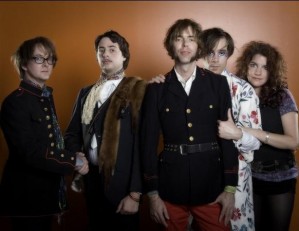 AS: Definitely, is it hard to learn an of Montreal song. I mean they have so many twists and turns to them, it must be difficult to get it straight.
AS: Definitely, is it hard to learn an of Montreal song. I mean they have so many twists and turns to them, it must be difficult to get it straight.
JH: It’s incredibly difficult. We often talk about it and wonder if anyone notices and the fact that most other bands do so confident and challenging. If you need to listen to a song as a whole and hear it as a sort of system of lines kind of looping and blipping around each other and it all kind of flows together and the focus is on Kevin’s voice. But it’s not that they’re so incredibly intricate, it’s that they’re pieced together…Dottie said this, just before you called, she said it’s like a puzzle that somebody put together and then re-cut all the lines and then threw it on the floor and said put it back together…that’s her analogy not mine. Kevin has a writing process where he does not construct a single line of an instrument, like here is the bass line. Rather he records each couple of measures for like a verse; he’ll record three notes on the bass, then he’ll back it up and record five more notes on the bass and do that four or five times [does vocal demonstration] but he never wrote that finished line, and then it’s our job to take the four parts and make them one part, the twenty-five vocal tracks and make them three-part harmony.
AS: Ah, I see.
JH: For me it’s especially difficult on the drums because he has as many as twenty tracks of electronic programmed drums and them I have to distill the main sections of what’s the most important part of that beat and translate it onto a regular drum set so yes, playing in the band is incredibly difficult and the parts are non-intuitive, they come in a sequence of odd time-signatures, he’ll change key very often, the tempos change in the middle of a song…the chorus might be 120 beats and the verse 130 and you have to compensate for that. So it’s extremely complicated but challenging in a way that we all feel rewarded for it. Like if we can pull it off, then we’ve done the impossible and doing the impossible is the norm for us.
AS: So it sounds like the finished product is almost unintentional in a way.
JH: It’s sort of like painting, you know…until it’s done, it’s not done and he keeps throwing things on and moving things around until it’s a song for him, and then you have to go backwards and deconstruct it. That’s the process of how we take them from recordings into live performance; it’s just a massive deconstruction, going through and listening to each individual track and then making that one part so that it’s possible for one human to play.
AS: Did you adopt a similar style in recording your own album or did you have everything thought out beforehand?
JH: I’m sort of the exact opposite. I tend to sit down and write the entire song on a guitar or piano and all the chord changes, lyrics and melodies already done and then start adding instruments on top of that. Which is a way that Kevin works also; he doesn’t exclusively do things the way I just described it. But that’s where he’s at right now; that’s Skeletal Lamping into Hissing Fauna. But for many years before that, he did it in a traditional way of writing mostly on guitar or piano. Some of the newer songs that we’re doing have a 60s, 70s kind of feel and he’s written them that way, but the thing is you can’t pin him down, he’s all over the place, and I’ve been with him for over a decade watching him develop different styles and every record there’s a big shift.
 AS: You make it sound like it’s all on him, like does nothing comes out of a group jam session or whatever?
AS: You make it sound like it’s all on him, like does nothing comes out of a group jam session or whatever?
JH: Well, that’s not true either, we do that as well, you kind of have to understand the time-line. We’ve morphed into different images of the group in a distinct way for each record. The last two records have been shifting more into Kevin’s kind of like isolation, him working strictly on the computer. At the same time, while he was doing that we went into the studio and recorded live tracks as a band and some of them ended up on the record. Right now we’re doing an entirely live set. The shows that we’re doing this month, we have totally abandoned all the pre-recorded backing tracks, the computer, the click tracks, there’s no drum machine, no synthesizers, or second bass or any of the instruments that I normally play. We’re doing this catalog of Skeletal Lamping, Hissing Fauna, Sunlandic Twins, back as far as a couple tracks from Satanic Panic in the Attic, and we’re presenting all of them as a straight up rock band. Two guitars, one bass, one keyboard and drums. There’s no drum machines, no drum triggers, no backing tracks and we’re still playing all those arrangements, but attempting them as a straight up 5 people rendition of these songs so it’s a totally new thing and we’ve been working very closely as a group arranging that. And that’s just for this tour, it’s a very special thing we’re trying.
AS: So that’s not by chance where you see the next album going or anything?
JH: No. Not at all. It’s gonna be something very different. But to me it’s important to keep things interesting and hopefully audiences will respond to that; it’s not something you get to see everywhere. We’ve already done the huge tour with like 16 people on stage and side video screens and multi-level drummers and electronics and backing tracks. We’ve done the record that sounds like the record. And now we’re doing a very special version of those songs. And I think it sounds very exciting, I’m of course biased, but I think the essence of the songs is still there. And when you hear a song like “Heimdalsgate”, everyone’s used to hearing it with this bouncing drum machine. And you hear it now it’s still all there but it’s like a rock band. Love it or hate it, either way, it’s still the band stretching itself to do something challenging instead of us getting up there and doing the same set we’ve done for a year and a half.
AS: Which keeps it interesting for you guys as well. I mean it must get boring to do the same show every night.
JH: It’s not necessarily boring, but it stinks. We know that we can pull out the hits; we can do “Oslo in the Summertime,” we can do “Chemicals,” we can do the one from the Outback Commercial. We can bust that out in our sleep and have it sound just like the record. But it’s all gonna change to do it live and have it be a real challenge where we have to communicate with each other. That’s the other thing, we’ve been operating for the last year and a half–more like three years– with these in-ear monitors, we all have a send coming from a computer with a guide that gets us through the arrangements, so we don’t necessarily have to listen to each other because we’re all synced into the computer. Still playing out parts live, but all of our parts are augmented by what we’re hearing coming from the brain. Now we’re completely off the grid, so now it’s back to playing in a way that you have to physically communicate and look at each other and everyone has to hear everyone; it’s a return to the way we used to play after we’ve been through every technological advance we could push ourselves through. Now its kind of like back to basics.
AS: Gothca, so more of like a visceral kind of experience.
JH: Yeah, anyway, that’s what you’re gonna see at the show this spring. And then we’re totally scrapping that and reinventing this whole new plan when the record comes out. This is our kind of last splash before the next record. This is our tail-end of 2009 although its already 2010 but for us this is wrapping up the Georgie Fruit era before we move into the next totally different record.
AS: So you’re implying that’s going away, that Georgie Fruit persona?
JH: I wouldn’t say it’s like the death knell of Georgie Fruit but he’s definitely left the building. His influence is still in the room, but Kevin’s got a lot more characters to come. To be honest, we’re not sure what it’s gonna be because we’re still assembling the record, and so far there’s about 25 tracks, and maybe 16 or 17 that will be used.
Related posts
- Interview: The Rosebuds (w/ Ivan Howard)Aural States: What is your background and history together? Is...
- Interview: The Secret Machines (w/ Brandon Curtis)[Audio clip: view full post to listen] MP3: The Secret...
- Say Hi (To Your Mom) Interview (w/ Eric Elbogen)Here, I present to you, dear reader, our latest exclusive...
- Interview: !!! aka Chk Chk Chk (w/ Nic Offer)Aural States: So you guys formed in 1996; that was...
- Interview: The Oranges Band (w/ Roman Kuebler) [Part 1]Photo credits: Natasha Tylea (1-3), Greg Szeto (4-5) The Oranges...





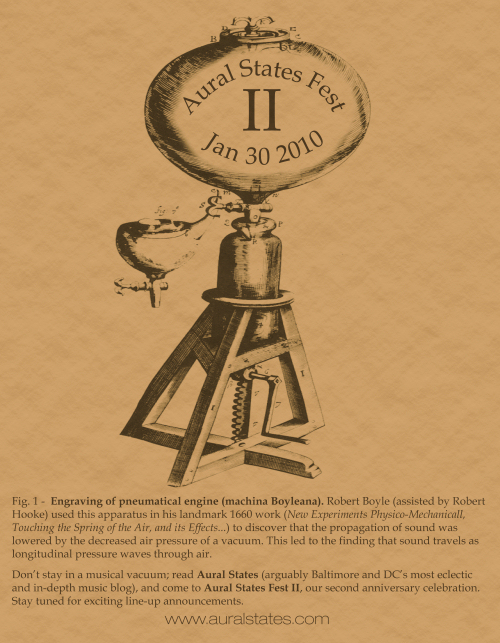
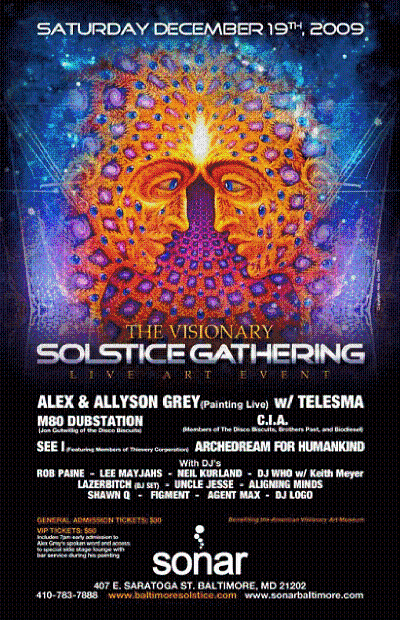









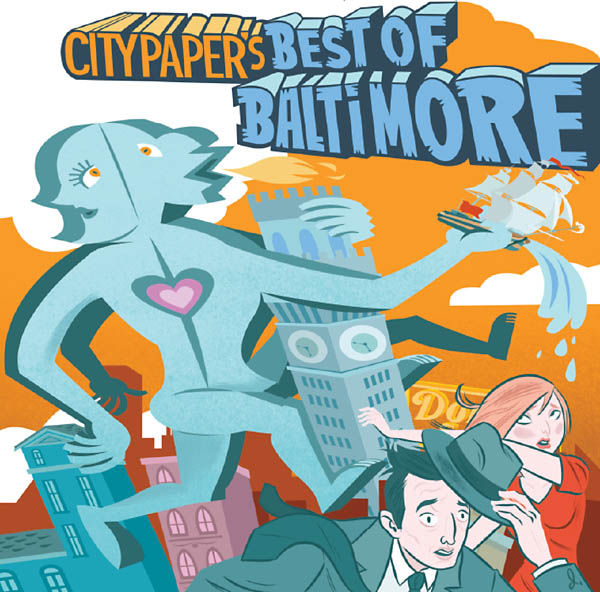
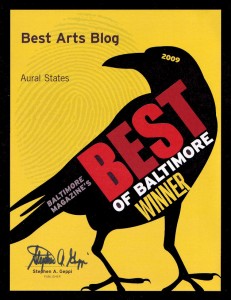


 Double Dagger: Masks EP
Double Dagger: Masks EP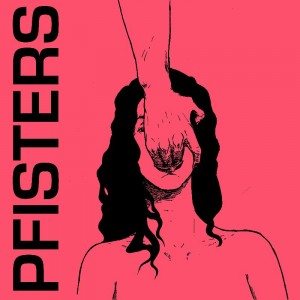 Pfisters: Narcicity
Pfisters: Narcicity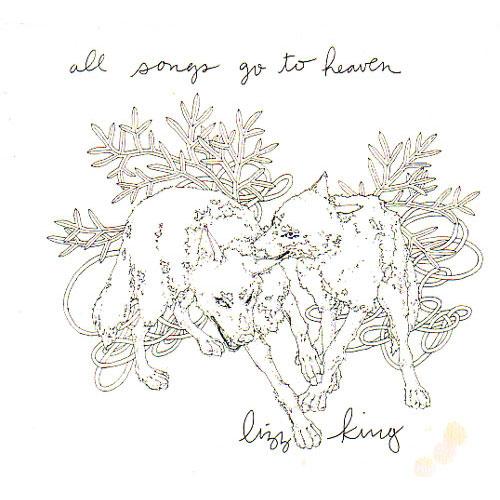 Lizz King: All Songs Go To Heaven
Lizz King: All Songs Go To Heaven Imperial China: Phosphenes
Imperial China: Phosphenes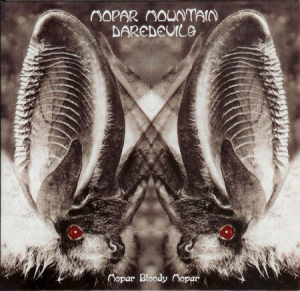 Mopar Mountain Daredevils: Mopar Bloody Mopar
Mopar Mountain Daredevils: Mopar Bloody Mopar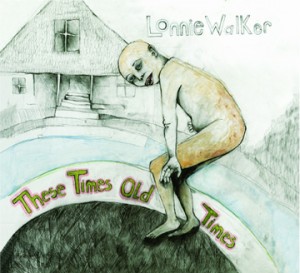 Lonnie Walker: These Times, Old Times
Lonnie Walker: These Times, Old Times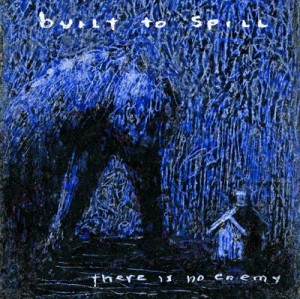 Built to Spill: There Is No Enemy
Built to Spill: There Is No Enemy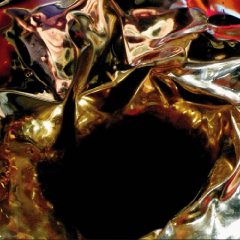 Hypnotic Brass Ensemble: Hypnotic Brass Ensemble
Hypnotic Brass Ensemble: Hypnotic Brass Ensemble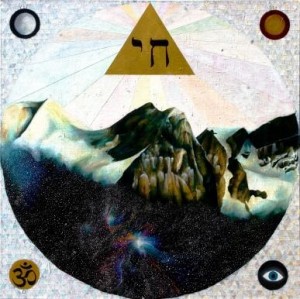 Secret Mountains: Kaddish EP
Secret Mountains: Kaddish EP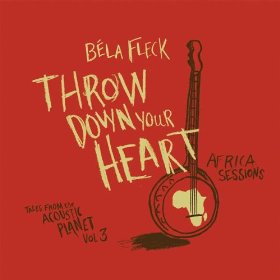 Bela Fleck: Throw Down Your Heart: Tales From the Acoustic Planet, Vol. 3 -Africa Sessions
Bela Fleck: Throw Down Your Heart: Tales From the Acoustic Planet, Vol. 3 -Africa Sessions Lands & Peoples: Lands & Peoples EP
Lands & Peoples: Lands & Peoples EP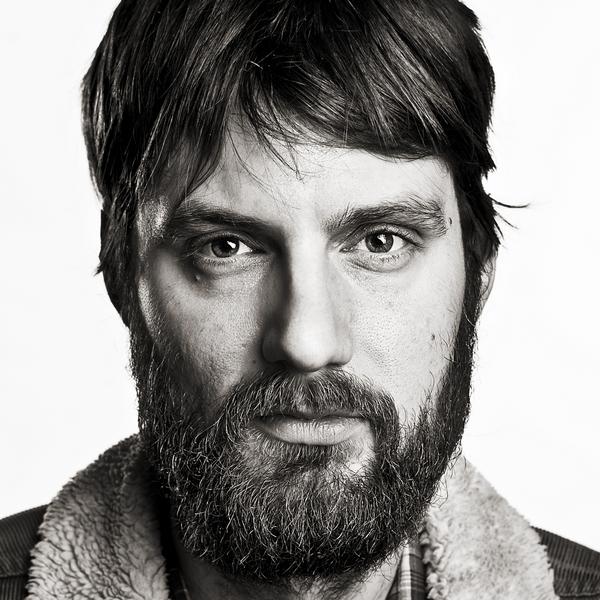 Caleb Stine: Eyes So Strong and Clean
Caleb Stine: Eyes So Strong and Clean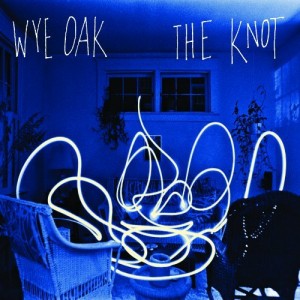 Wye Oak: The Knot
Wye Oak: The Knot Pontiak: Maker
Pontiak: Maker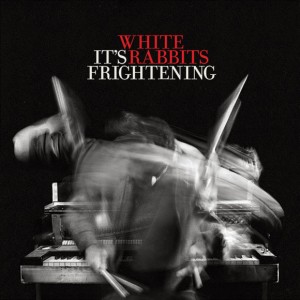 White Rabbits: It's Frightening
White Rabbits: It's Frightening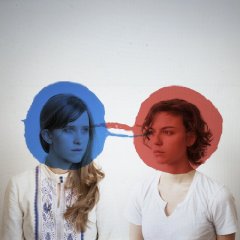 Dirty Projectors: Bitte Orca
Dirty Projectors: Bitte Orca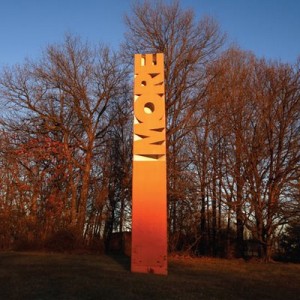 Double Dagger: More
Double Dagger: More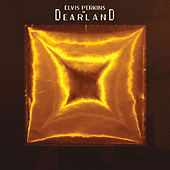 Elvis Perkins in Dearland: Elvis Perkins in Dearland
Elvis Perkins in Dearland: Elvis Perkins in Dearland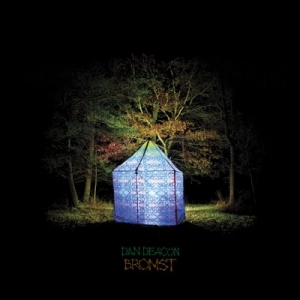 Dan Deacon: Bromst
Dan Deacon: Bromst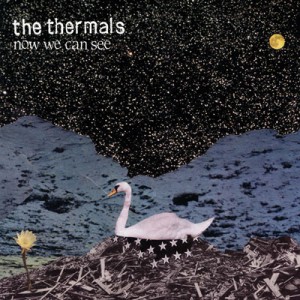 The Thermals: Now We Can See
The Thermals: Now We Can See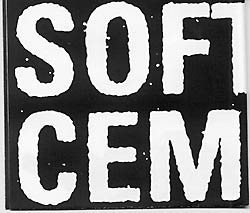 Soft Cement: Think About It EP
Soft Cement: Think About It EP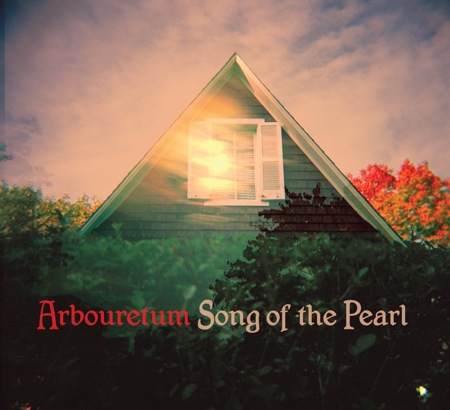 Arbouretum: Song of the Pearl
Arbouretum: Song of the Pearl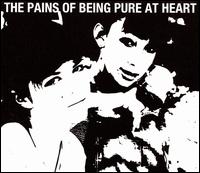 The Pains of Being Pure at Heart: The Pains of Being Pure at Heart
The Pains of Being Pure at Heart: The Pains of Being Pure at Heart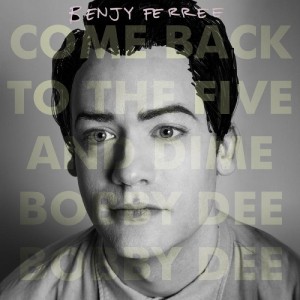 Benjy Ferree: Come Back to the Five and Dime, Bobby Dee Bobby Dee
Benjy Ferree: Come Back to the Five and Dime, Bobby Dee Bobby Dee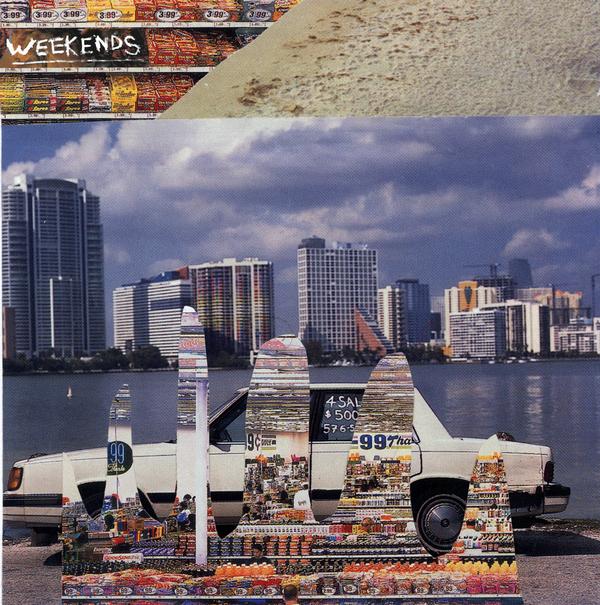 Weekends: Weekends
Weekends: Weekends Height With Friends: Baltimore Highlands 12" LP, Limited-Run Vinyl Only
Height With Friends: Baltimore Highlands 12" LP, Limited-Run Vinyl Only Caverns: Kittens! EP
Caverns: Kittens! EP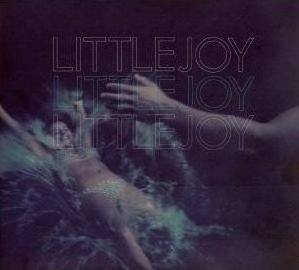 Little Joy: Little Joy
Little Joy: Little Joy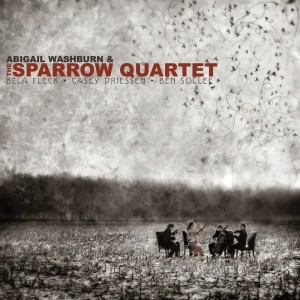 Abigail Washburn & the Sparrow Quartet:Abigail Washburn & the Sparrow Quartet
Abigail Washburn & the Sparrow Quartet:Abigail Washburn & the Sparrow Quartet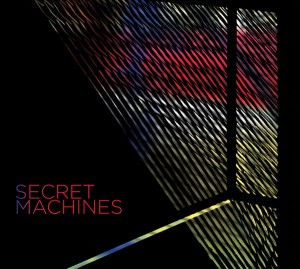 The Secret Machines: Secret Machines
The Secret Machines: Secret Machines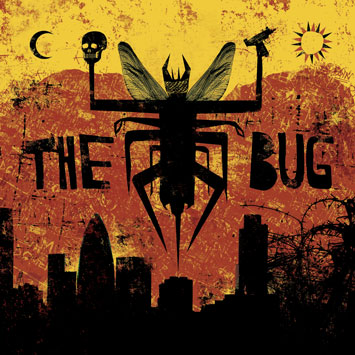 The Bug: LondonZoo
The Bug: LondonZoo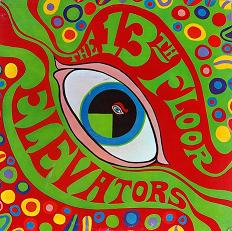 13th Floor Elevators: Psychedelic Sounds of the 13th Floor Elevators (Vinyl Mono LP only)
13th Floor Elevators: Psychedelic Sounds of the 13th Floor Elevators (Vinyl Mono LP only)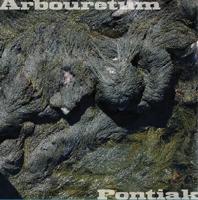 Arbouretum/Pontiak: Kale (Vinyl LP only)
Arbouretum/Pontiak: Kale (Vinyl LP only) Small Sur: We Live in Houses Made of Wood
Small Sur: We Live in Houses Made of Wood AbeVigoda: Skeleton
AbeVigoda: Skeleton ImperialChina: Methods: EP
ImperialChina: Methods: EP